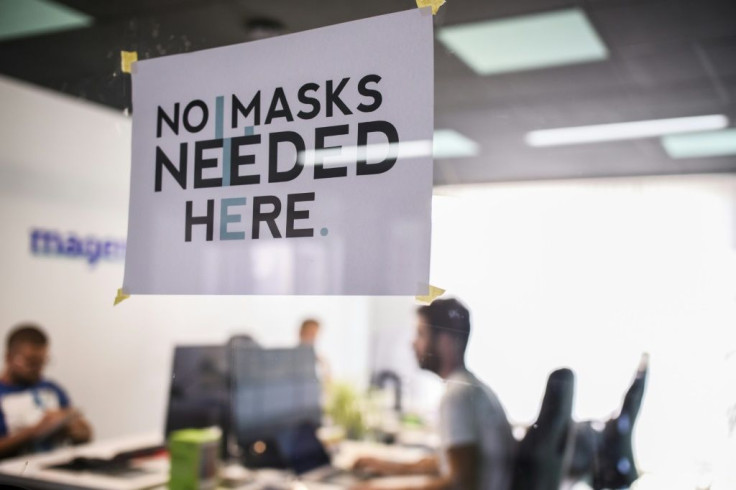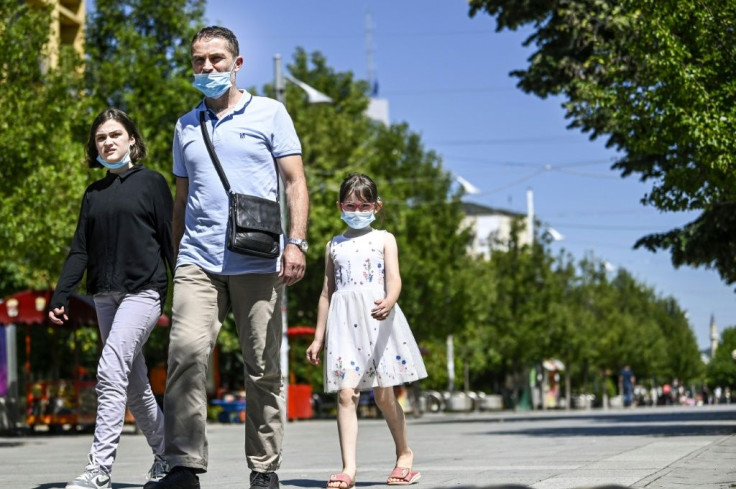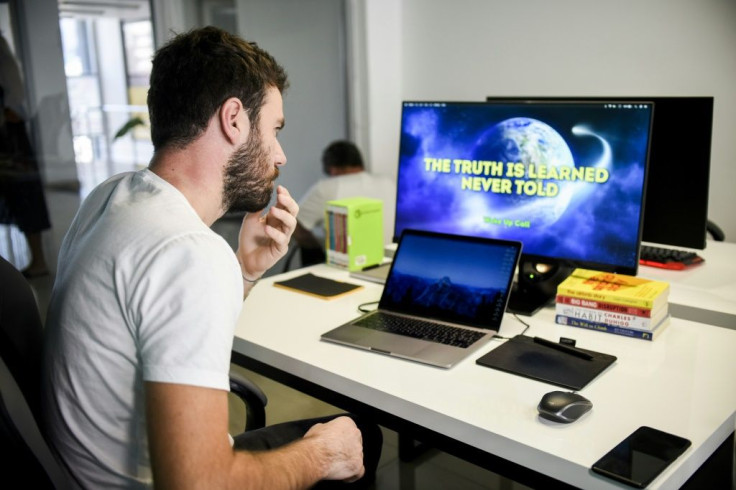As Hospitals Fill, Kosovo Battles Plague Of Virus Deniers
Inside Kosovo's hospitals, beds are filling up with the sick and dying as Covid-19 tears through one of Europe's poorest corners.
But outside on the streets, a third of the population believe the pandemic is pure hoax, according to a recent poll that has shocked a government now trying to tackle the scourge of disbelief.
Kosovo, a former Serbian province home to 1.8 million, has recently seen some of the highest Covid-19 death rates in Europe -- while having one of the weakest healthcare systems.
In Pristina, relatives, many from rural areas, told AFP that they took shifts waiting outside the infectious disease clinic to be close to their sick loved ones and on hand to buy medicine as the hospital reserves were almost empty.
In a bid to convince the public of the real dangers at hand, the government has decided to let media into previously sealed hospital wards to film the suffering.

"Tell those outside who don't believe what you saw here," an exhausted elderly man, recovering at the infectious disease clinic after a two-week battle with the respiratory disease, told a local TV channel.
"Don't joke with this. How can anyone believe a lie that the virus does not exist?" he implored.
Others who had once been among the unbelievers now know the dangers firsthand.
"To tell you the truth, I believed it did not exist. Now, after the hell I went through, I am convinced and I am telling the whole nation," said an elderly woman, who had been treated with oxygen therapy for weeks.

Coronavirus sceptics have gained a following around the world, from France to Australia and the United States, including Serbia, Brazil and South Africa.
Conspiracy theory videos have notched up millions of views and continue to spread online despite efforts by social networks to shut down the disinformation.
In Kosovo, the survey by Pyper poll company found that a third of the population did not believe the virus was real, while 61 percent said Covid-19 was "less risky than described" by authorities and media, said the company's CEO Ilir Krasniqi.
The scepticism is a huge problem for the government as it tries to enforce measures in Kosovo, which had its deadliest month yet in August with nearly 300 deaths -- a toll higher than all the three prior months combined.
Citing the poll's "intolerable" findings, Prime Minister Avdullah Hoti's government has tightened curfews in hot-spot cities, ordered early closures for restaurants and bars and banned public gatherings and religious ceremonies.

In mid-August, parliament also adopted a separate anti-Covid law with harsh penalties for those who violate safety measures, including a 35-euro ($41) fine for not wearing a mask outdoors and a 500-euro fine for violating isolation orders.
The law's champion, parliamentary speaker Vjosa Osmani, said it also targeted virus deniers.
"The damage they do to society is great and their misinformation should not be left unpunished," she said.
Yet, 25-year-old Mendim Hoxha, a designer in eastern Gjilan, remains unconvinced.
At the entrance to his office is a sign that says "no masks needed here".
"I don't see the threat by the pandemic," he told AFP. "The deaths are not caused by the virus but by other health issues."
Leonard Presheva, a 28-year-old Pristina resident, insists the virus is no more than a normal flu.
"In the beginning they said keep a distance, wear masks and gloves. Now nobody cares now about distance and gloves, but they want us to wear the masks so they can block our breathing during 40-degree weather," he told AFP.
Some say it is no surprise to see such scepticism in a society where corruption and an unstable political scene have eaten away at public trust in government for years.
"A considerable part of the population is filled with conspiracy theories that this is only in the interest of governments, of great powers, of certain political forces," said sociologist Shemsi Krasniqi, a professor at Pristina university.
In the first week after the penalties came into force, police issued some 5,000 fines for failure to wear a mask or respect distancing rules.
Hoxha, the designer, says he has been stopped by police "seven to eight times" for not wearing a mask, which he thinks hampers breathing.
"It is totally fine," he told AFP. "I want to stand up for my rights and for what I believe."
© Copyright AFP 2024. All rights reserved.





















